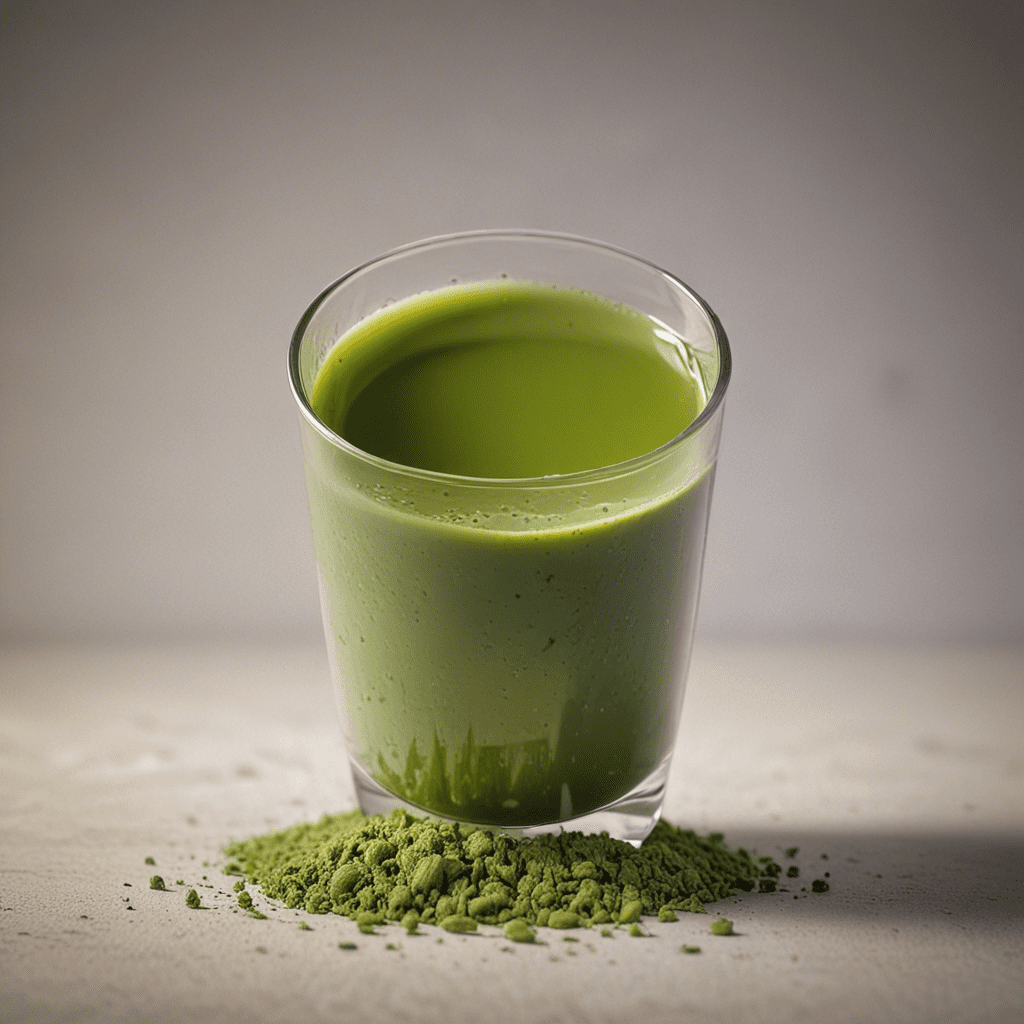
Introduction: The Intersection of Matcha and Blood Sugar
Matcha, a finely ground green tea powder, is gaining recognition for its potential role in regulating blood sugar levels. Matcha is derived from the Camellia sinensis plant and contains an array of nutrients and antioxidants that have been shown to influence glucose metabolism. This article explores the impact of matcha on blood sugar, examining its mechanisms of action and clinical evidence supporting its benefits.
Matcha: A Nutrient-Rich Green Tea
Matcha is distinct from other green teas due to its unique cultivation and processing methods. The tea plants are shaded for several weeks before harvest to enhance chlorophyll production, resulting in a vibrant green color and concentrated nutrient content. Matcha contains high levels of catechins, a type of antioxidant linked to various health benefits, including blood sugar regulation.
Antioxidants and Blood Sugar Regulation
Antioxidants, such as catechins found in matcha, play a crucial role in blood sugar management. They help protect the body from oxidative stress, a condition associated with inflammation and insulin resistance. By reducing oxidative stress, antioxidants may improve insulin sensitivity and support healthy blood sugar levels.
Mechanisms of Matcha's Glucose-Lowering Effects
Matcha exerts its glucose-lowering effects through several mechanisms:
Inhibition of Glucose Absorption: Matcha contains polyphenols that inhibit enzymes involved in glucose absorption in the intestines, slowing down the release of sugar into the bloodstream.
Increased Insulin Sensitivity: Catechins in matcha enhance the body's sensitivity to insulin, a hormone responsible for transporting glucose from the blood into cells. Improved insulin sensitivity helps regulate blood sugar levels more effectively.
Stimulation of Glucose Utilization: Matcha may stimulate glucose uptake by muscles, promoting the utilization of sugar for energy production. This process helps lower blood sugar levels.
6. Matcha's Influence on Insulin Sensitivity
Matcha has been found to improve insulin sensitivity, which is essential for regulating blood sugar levels effectively. Insulin is a hormone that allows glucose to enter cells for energy production. When insulin sensitivity is impaired, cells become resistant to insulin, leading to high blood sugar levels. Matcha's catechins, particularly epigallocatechin gallate (EGCG), have been shown to increase insulin receptor expression and signaling, thereby enhancing insulin sensitivity.
7. Potential Benefits for Individuals with Diabetes or Prediabetes
Studies have suggested that matcha consumption may benefit individuals with type 2 diabetes or prediabetes. A 2019 review of clinical trials found that matcha supplementation significantly reduced fasting blood sugar levels and improved insulin sensitivity in patients with type 2 diabetes. Moreover, matcha may help prevent the development of type 2 diabetes by reducing oxidative stress and inflammation, which are risk factors for the condition.
8. Optimal Consumption Guidelines for Blood Sugar Control
The optimal amount of matcha for blood sugar control varies depending on individual factors. However, research suggests that consuming 2-3 cups (500-750 ml) of matcha tea per day can provide significant benefits. It's important to note that matcha is a concentrated form of green tea and should be consumed in moderation.
9. Additional Considerations: Possible Interactions and Side Effects
Matcha is generally safe for consumption, but it may interact with certain medications, such as blood thinners and antidepressants. Additionally, excessive consumption of matcha may lead to side effects like anxiety, jitteriness, and insomnia due to its caffeine content. It's recommended to consult a healthcare professional before consuming large amounts of matcha, especially if you have underlying health conditions.
10. Conclusion: Matcha as a Supportive Tool for Blood Sugar Management
Matcha, with its rich antioxidant content, has demonstrated promising effects on blood sugar regulation. By inhibiting glucose absorption, increasing insulin sensitivity, and stimulating glucose utilization, matcha can support healthy blood sugar levels. While it's not a cure for diabetes or prediabetes, matcha can be a valuable addition to a holistic approach to blood sugar management. However, it's crucial to consult a healthcare professional before making significant dietary changes and to consume matcha in moderation to avoid potential side effects.
Frequently Asked Questions
Q: Can matcha help lower my blood sugar levels?
A: Yes, matcha contains antioxidants that have been shown to reduce blood sugar levels and improve insulin sensitivity.
Q: How much matcha should I consume for blood sugar control?
A: It's recommended to consume around 2-3 cups (500-750 ml) of matcha tea daily.
Q: Are there any side effects of consuming matcha?
A: Matcha is generally safe, but excessive consumption may lead to anxiety, jitteriness, or insomnia due to its caffeine content.
Q: Should I talk to my doctor before consuming matcha?
A: Yes, it's important to consult a healthcare professional before consuming large amounts of matcha, especially if you have underlying health conditions or are taking medications.


